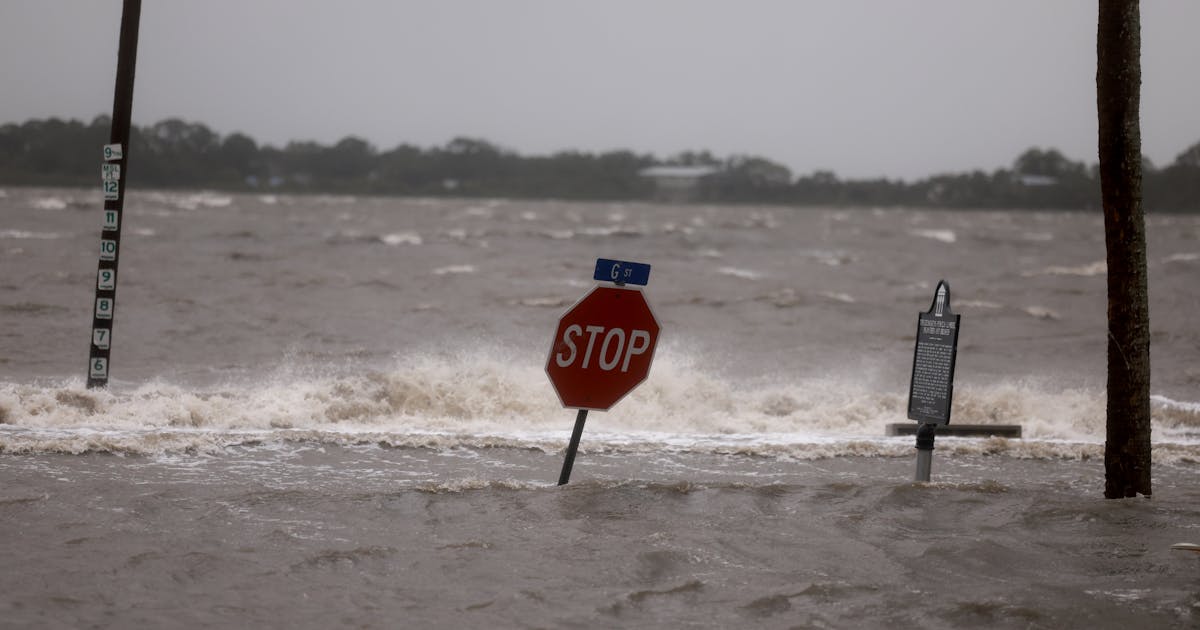While working- and middle-class Floridians struggle to afford housing and insurance coverage and rebuild after disaster strikes, the DeSantis administration has further showered the insurance industry with giveaways and appointments while placing much of the blame for the state’s growing crisis on their customers. A report published last year by the American Federation of Teachers, Hedge Clippers, Florida Rising, and the Center for Popular Democracy found that insurance industry donors gave DeSantis and his political action committee, Friend of Ron DeSantis, $3.9 million between 2018 and 2022. Those contributions included “more than $150,000 in one day from dozens of State Farm agents,” the report notes. “Including their donations to the Republican Party of Florida since January 1st, 2019 (days before DeSantis took his oath of office), campaign money from the insurance industry balloons to more than $9.9 million,” the report adds.
The problems with Florida’s insurance market have reached new heights during DeSantis’s tenure but aren’t altogether new. Major insurers began fleeing the state after Hurricane Andrew in 1992, when many of their competitors went bankrupt amid historic losses. Costly storm seasons in 2017 and 2022 saw more than a dozen other companies, like Farmers Insurance, pull out of the state, too. In their place—encouraged by generous state incentives—smaller and sometimes shadier insurers have emerged, often concentrated in Florida and heavily dependent on reinsurance, which itself is becoming much more expensive, complex and speculative. The state’s population has also continued to grow, including in risky, ritzy areas along the South Florida coast. That means there are more properties exposed to worsening damages and greater concentrations of risk for insurers that might be less equipped to weather it.
Between 2021 and 2022, seven Florida property insurers went bankrupt, leaving policyholders with outstanding claims with little recourse and massive bills. Those bankruptcies may be somewhat surprising given those firms had all received an “A” rating from an Ohio-based firm called Demotech Inc, a ratings agency meant to serve as an alternative to the likes of Standard & Poors and AM Best, which often refuse to rate upstart Florida insurers.



